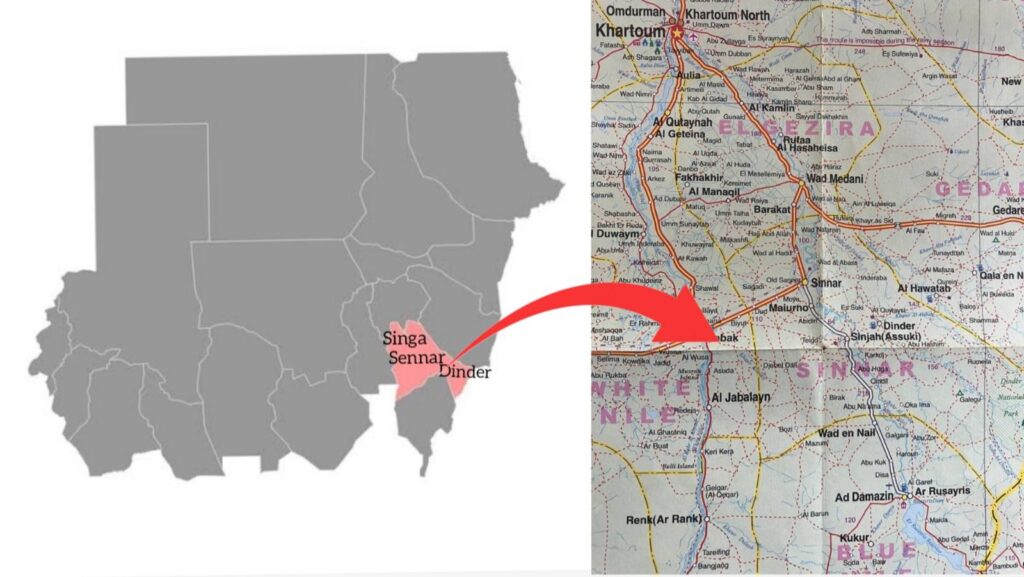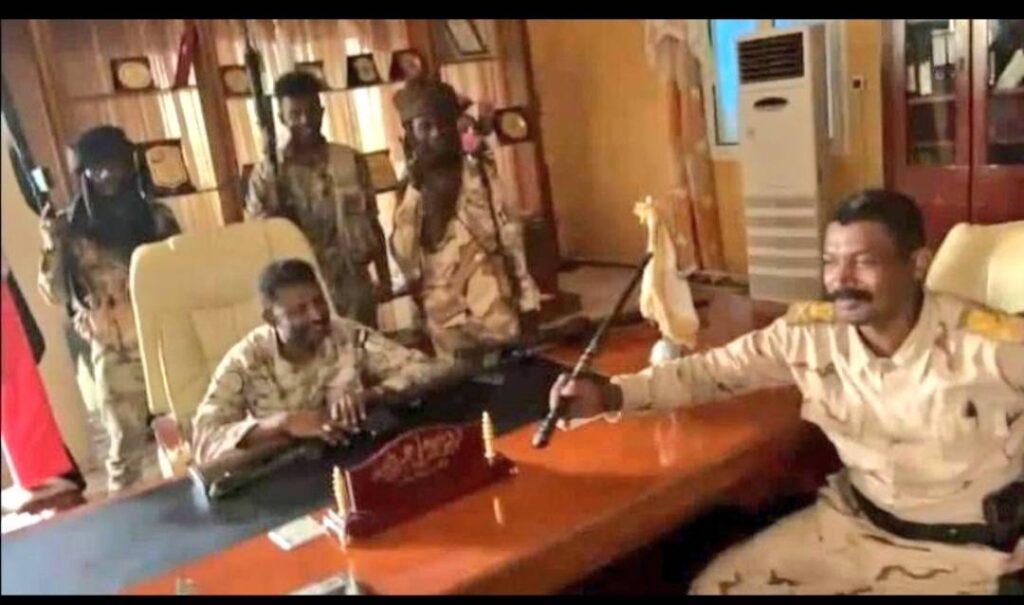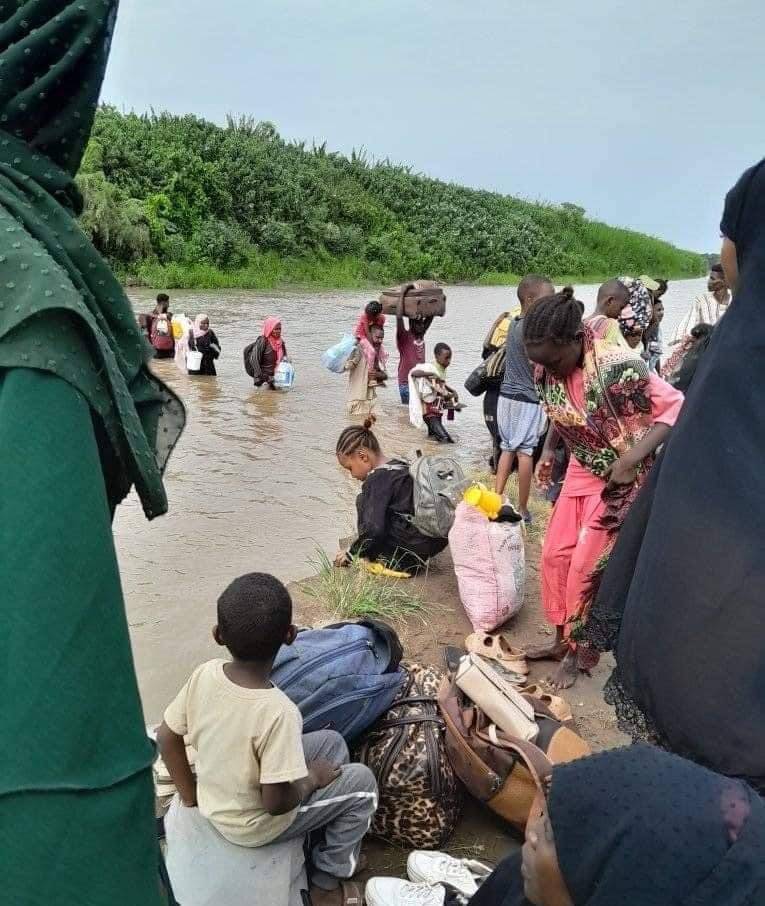A journalist & academic with a Ph.D. in applied linguistics. He works in various fields; teaching, translation, editing, writing for digital newspapers, and human rights defense.
The Sudanese Rapid Support Force (RSF), a rebel paramilitary militia, has achieved a major strategic win over the Sudanese Armed Forces (SAF) by seizing control of the regional capital, Sinja, on Saturday, as well as the SAF garrison in Dinder, a city and game park located in the north-eastern Blue Nile state and South-eastern Sennar. The RSF now holds sway over most of Sudan and its neighboring countries’ borders.
Singa in Sennar state, which was seized by the RSF, is situated to the far east of the Blue Nile, an area that was previously under the control of the Burhan government army until. The RSF surprised many by capturing the major city of Wad Madani in December. The paramilitary group has been recruiting local fighters who have been gaining control over many villages and territories with growing effectiveness. Burhan’s forces are struggling to respond adequately: Burhan himself visited Sennar on Saturday to boost the morale of his troops as the RSF launched their attack.

The capture of Singa holds significant importance due to its strategic location. It serves as a launching point for advancing towards the Ethiopian border, where the RSF fighters have friendly relations. Additionally, it provides the opportunity to block supplies to the remaining government garrisons in El Obeid, the capital of North Kordofan and Kosti in the White Nile region. The paramilitary fighters have already established control over the borders with Libya, Chad, and the Central African Republic. With the recent capture of the regional capital Al-Fulah, they are now moving towards the border with South Sudan; the south Kordofan where is home to substantial oil fields. This raises the possibility of the despised RSF gaining control over the entire country. Koert Lindijer, the Africa correspondent for the Dutch newspaper NRC, and closely following the Sudan war situation says “If the fighting continues like this, Sudan will fall entirely into the hands of the RSF.”
The RSF’s entry into cities has been followed by widespread looting of stores, food warehouses, and homes, as well as the occupation of hospitals. In Sinja, the RSF soldiers were observed occupying a hospital and looting in the market prompting tens of thousands of people, many of whom had previously been displaced, to hastily flee with their meager belongings.
It is a frightening for the majority of Sudanese people. They escape from the RSF by moving from one city to another. Each village, each city they take over is looted as if it were attacked by hordes of locusts. According to the UN estimates ten million Sudanese have been forced to leave their homes, with two million seeking refuge abroad. Over seventy percent of the nation’s healthcare facilities have not been functioning; schools, colleges, and even mosques lie in ruins. The most tragic outcome of all, death due to starvation, looms ahead.

The ongoing conflict has led to the rebel paramilitary militia gaining dominance over the national army, the humanitarian situations are alarming. Koert Lindijer provides a concise overview of aid agencies’ forecasts, indicating that 2.5 million Sudanese individuals are projected to succumb to starvation by the year’s end. The absence of emergency stockpiles in neighboring countries means that averting a catastrophe is now unfeasible. Additionally, of the required $2.7 billion for a large-scale relief effort, only $430 million has been committed by global donor countries. Currently, over twenty million individuals (equivalent to 42% of the population) are grappling with severe food insecurity. He further adds “the biggest obstacle to a massive rescue operation is Burhan’s refusal to grant free access to all areas. Burhan is the internationally recognized leader of Sudan and aid organizations do not dare to start without his permission. Burhan fears that a rescue operation in RSF territory will give the RSF legitimacy. In this way, food aid has become a weapon.”


